When will the Covid-19 pandemic end? When will life get back to normal? It’s sooner than you think
There will be a time when the Covid pandemic starts becoming a thing of the past – and experts say it’s sooner than we think … with a catch.
Queensland and Western Australia are closed. Sydney has been in lockdown since the end of June while Melbourne is now the most shut-in city in the world.
Regional areas in New South Wales and Victoria are subject to harsh restrictions, while states and territories around the country remain on high alert to any spread of infection.
And the Australian international border remains closed to those seeking to enter or exit without a hard-to-get exemption.
Meanwhile in Norway, rowdy celebrations broke out across the country to mark the end of harsh restrictions that have been in place for more than a year.
“It has been 561 days since we introduced the toughest measures in Norway in peacetime,” the government said. “Now the time has come to return to a normal daily life.”
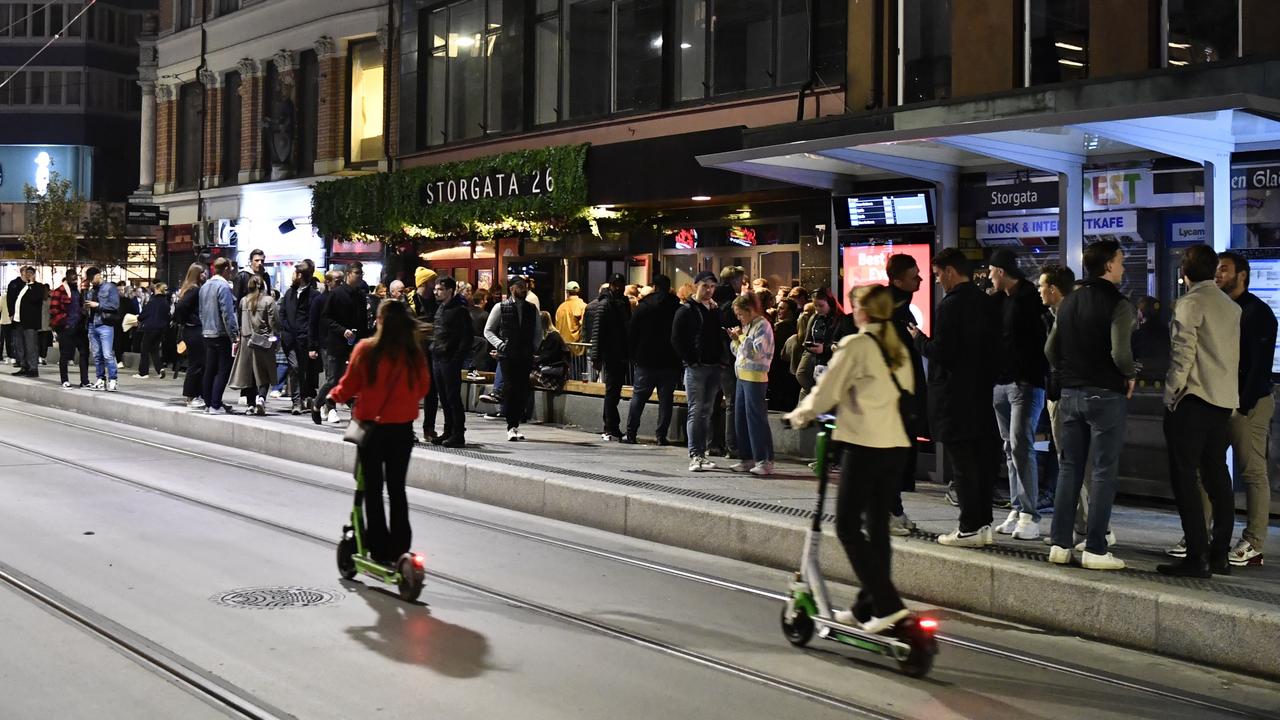
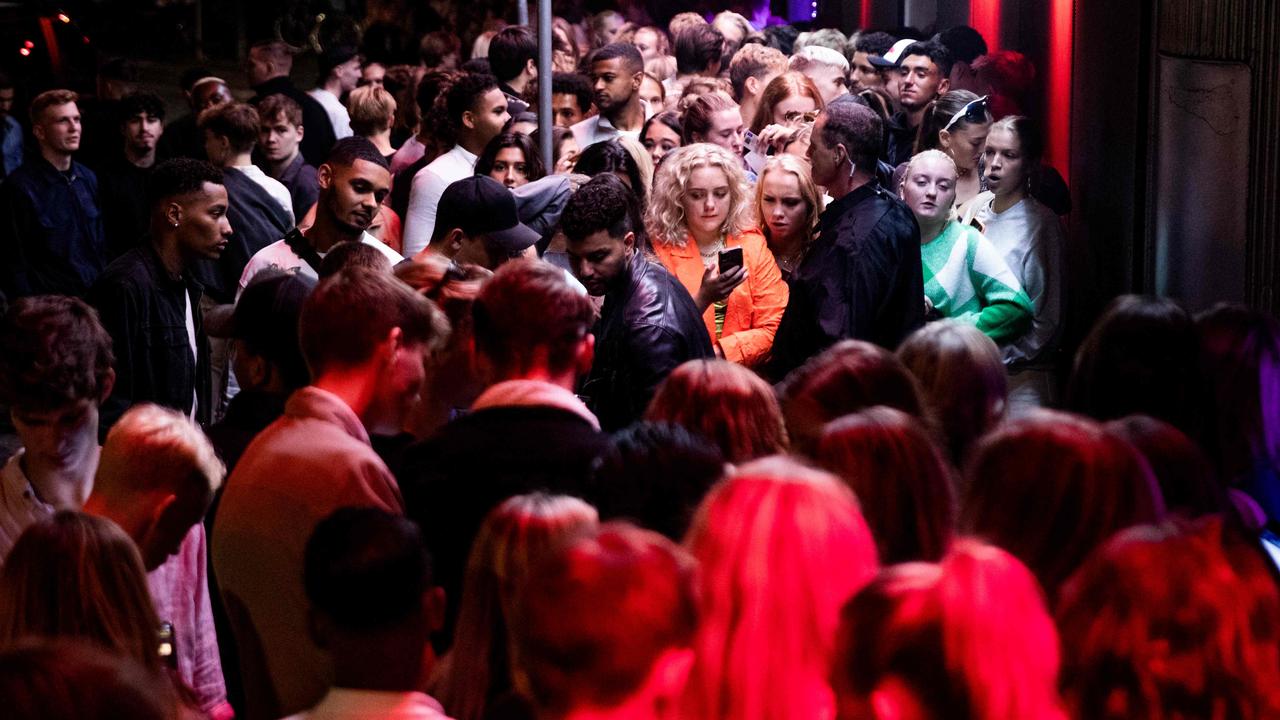
The move followed Denmark’s removal of all Covid-related restrictions earlier this month, including the rollback of a so-called ‘vaccine passport’.
The United Kingdom continues to enjoy its recently returned freedoms, with schools and workplaces reopening, hospitality venues bustling and tourists once again flocking to London.
Other countries with high vaccination rates are eyeing a full reopening, seeing life start to resemble what it did in 2019 before coronavirus reared its ugly head.
This time next year
And that way of life could be enjoyed by more of us sooner rather than later
Albert Bourla is the boss of Pfizer and was on the television news show This Week on US network ABC on Sunday.
Mr Bourla spoke about how the world will come to live with Covid-19 and declared that a return to normal life was possible “within a year”.
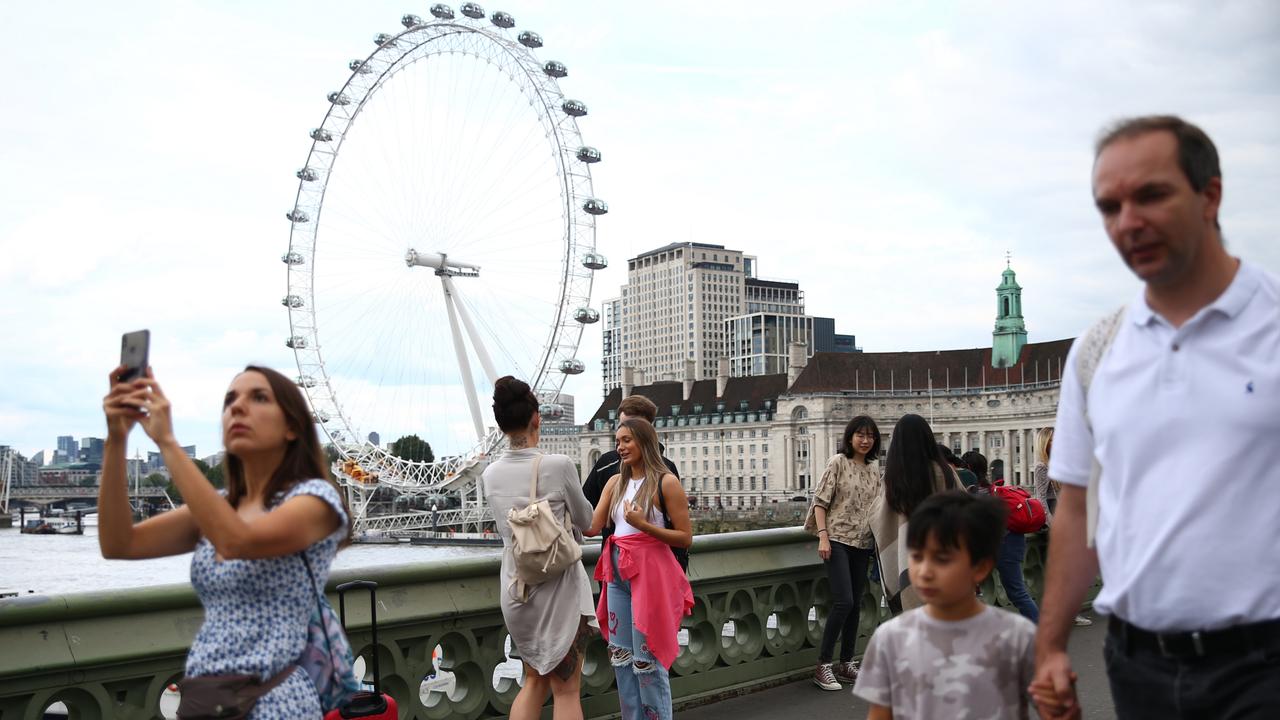
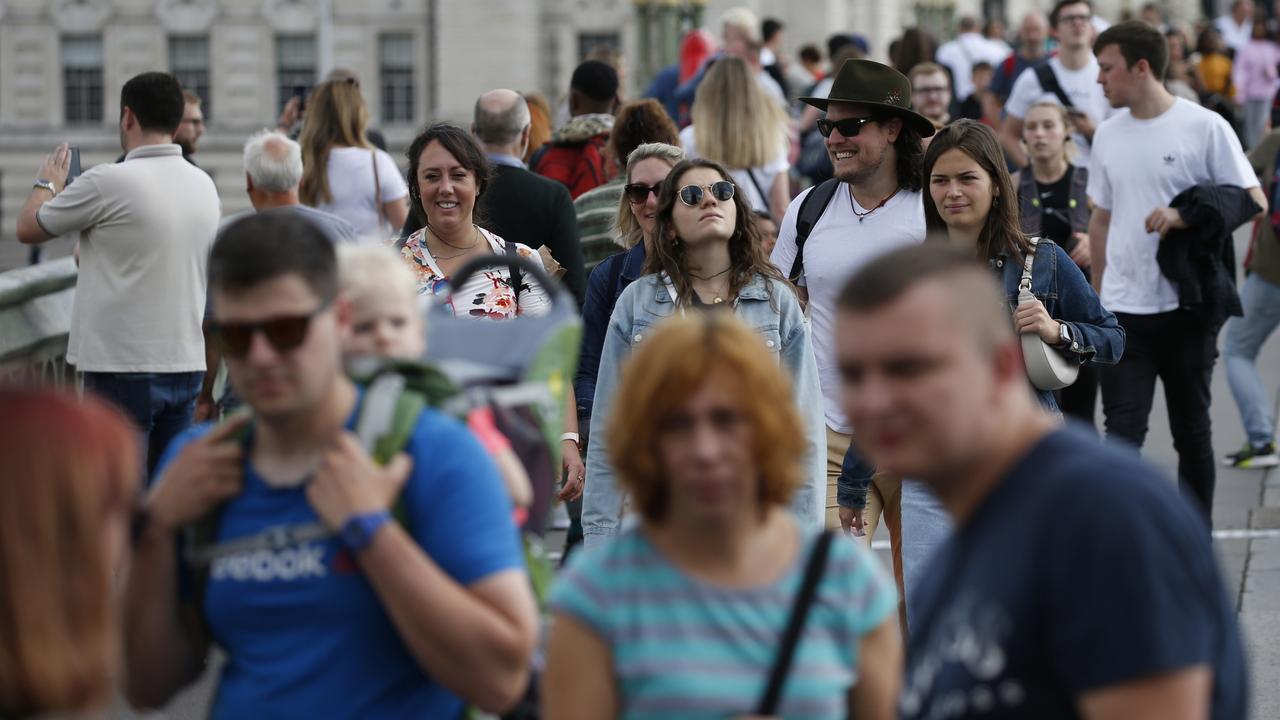
And while the end of the crisis is now firmly in sight, his optimistic outlook comes with a caveat.
“I don‘t think this means that variants will not continue coming,” he told the program. “And I don’t think this means that we should be able to live our lives without having vaccinations.”
Continuing the rapid rollout of vaccines globally is the key to being able to live with Covid-19, he said, and finetuned jabs that last longer and squash current and future strains are critical.
“The most likely scenario for me (is) because the virus is spread all over the world, that we will continue seeing new variants coming out and we will have vaccines that will last at least a year,” Mr Bourla said.
His remarks echo those of fellow drug company boss Stephane Bancel, who runs Moderna, who said the pandemic could be over “as of today, in a year, I assume”.
In an interview with the Swiss newspaper Neue Zuercher Zeitung, Mr Bancel said ramped up production of all vaccine types will see enough doses available by mid-2022 “so that everyone on this earth can be vaccinated”.
The delivery of vaccines to younger children, who have been infected by Delta in greater numbers and contributed to its spread, will also aid the return to normal life, he said.
A proportion of people will remain unvaccinated by choice and some “will immunise themselves naturally because the Delta variant is so contagious”.
But the choice is stark, Mr Bancel said – get vaccinated and enjoy life, “or don’t and risk getting sick and possibly even ending up in hospital”.
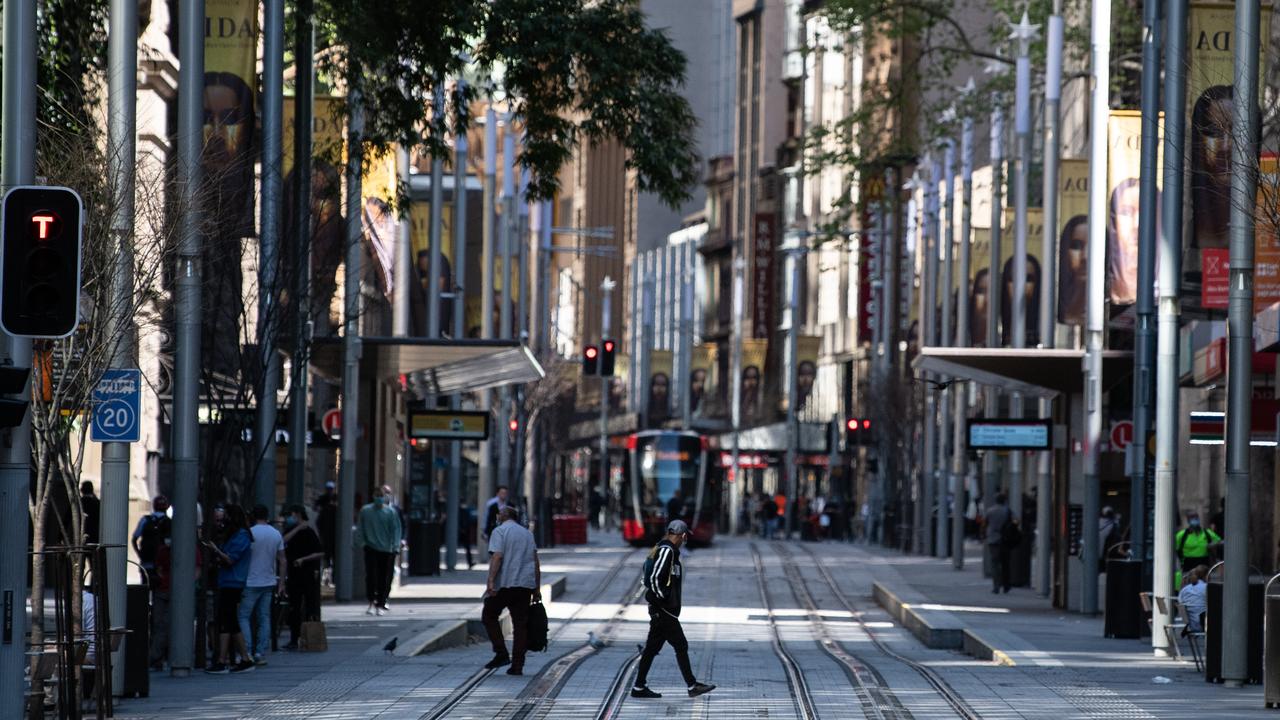
Why booster jabs are needed
For both drug company bosses, the most likely scenario moving forward is that Covid-19 vaccines will be needed annually, much like the seasonal influenza jab is given each year.
Authorities in the US have recently approved Pfizer’s vaccine booster shot for the elderly and other high-risk groups, including those in occupations exposed to infection, such as healthcare workers.
Mr Bancel believes booster shots will be needed “soon” and said Moderna’s will be a half-strength dose of its original formula.
The company is currently testing a “Delta-optimised variant” of its vaccine that’s more effective at squashing the highly infectious strain. It will form the basis of its 2022 booster shots, he said.
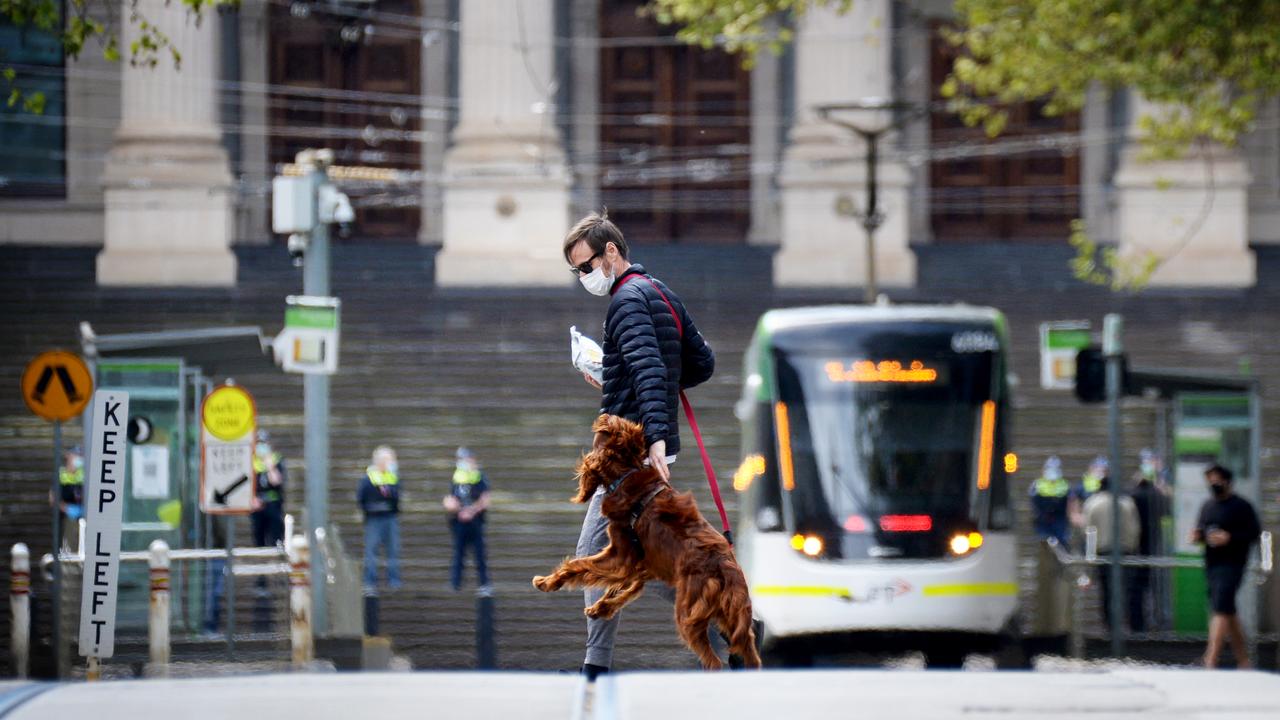
Speaking at the Forbes Health in Action Summit in June, Mr Bancel said all infection immunity wanes with time, whether natural or vaccine-induced.
On top of that, with Covid-19, “you don’t know which virus you’re going to get infected with … which variant – Alpha, Beta, Gamma, Delta, or even a new one that we don’t know of yet”.
The need for booster shots also depends on a person’s age or existing medical conditions, he pointed out.
Moderna is working to produce a single shot dose that can vaccinate against both Covid-19 variants and the seasonal flu.
For now though, the focus is on getting as many jabs in arms around the world as possible.
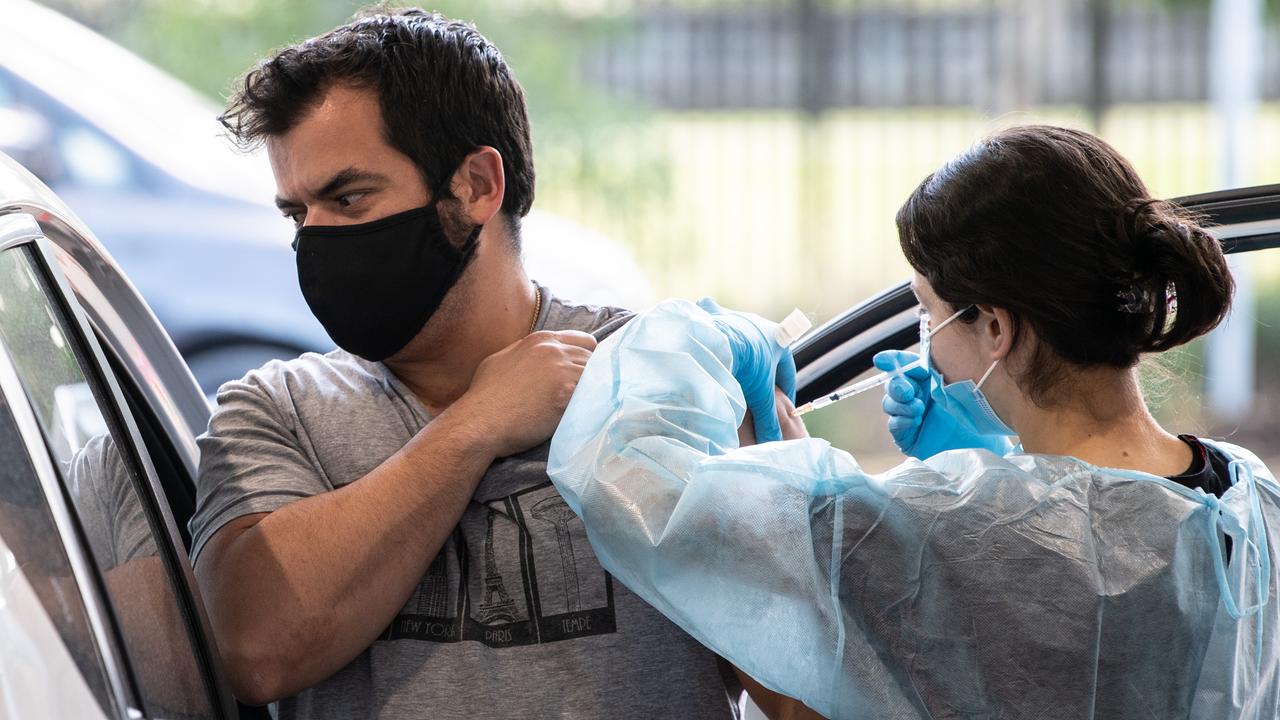
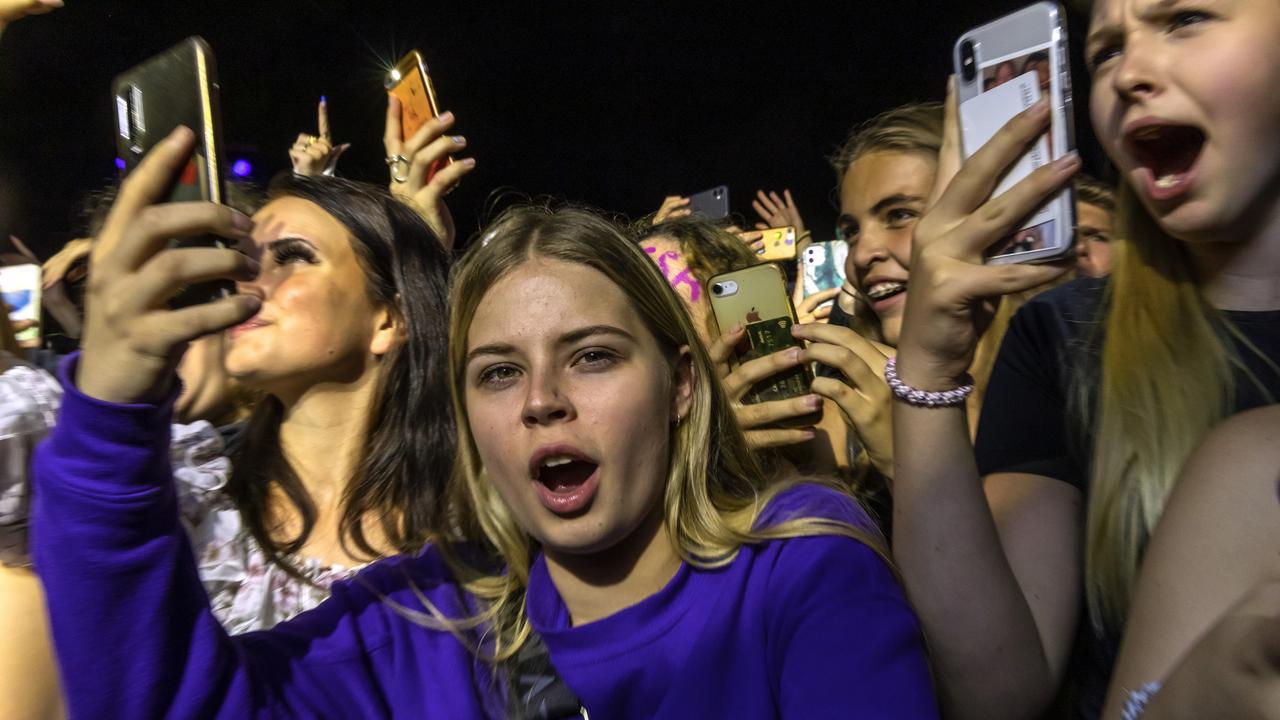
An enormous task ahead
As of today, 44.4 per cent of the world has received at least one dose of a Covid vaccine, bringing the total number of shots given to 6.1 billion.
But that huge figure is misleading, with vaccines in high-income nations skewing the result.
In high and upper-middle-income nations, some 60 per cent of people have received at least one dose, while that number is 30 per cent for lower-middle-income, and about 2 per cent for low-income countries, a tracker from Our World in Data shows.
Vaccination rates in some of the world’s poorest countries remains dangerously low.
For example, in the Democratic Republic of Congo and Haiti, less than 1 per cent of the population has been jabbed, according to Reuters.
Speaking at the United Nations General Assembly last week, Norway’s Prime Minster Erna Solberg said fewer than one-in-20 people in Africa are fully vaccinated.
Across Europe, that figure is significantly stronger at one-in-two, Ms Solberg said.
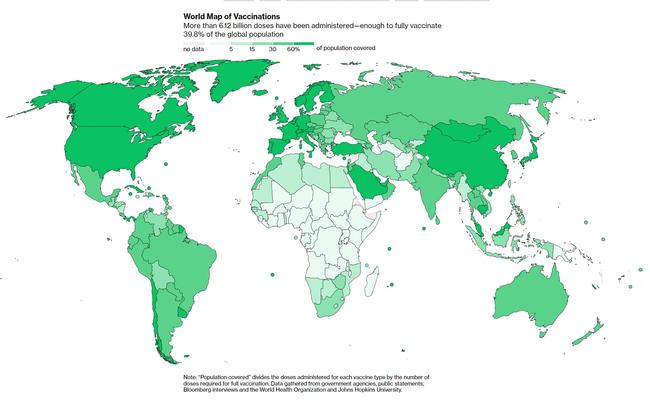
At a Covid summit hosted last week by the White House, global leaders gave a broad commitment to work towards the World Health Organisation’s target of vaccinating 70 per cent of the world’s population by next September.
On top of that, “many countries and stakeholders announced their intention to donate vaccines and financial support to critical vaccine readiness activities to ensure shots get into arms around the world”, the White House said in a statement.
The US pledged to purchase an additional 500 million vaccine doses to gift to countries that need them, bringing its total donation to 1.1 billion shots.
“To beat the pandemic here, we need to beat it everywhere,” President Joe Biden said. “This is an all hands on deck crisis.”
Since the start of the pandemic, 230 million people have been infected with Covid-19 and more than 4.7 million have died.






